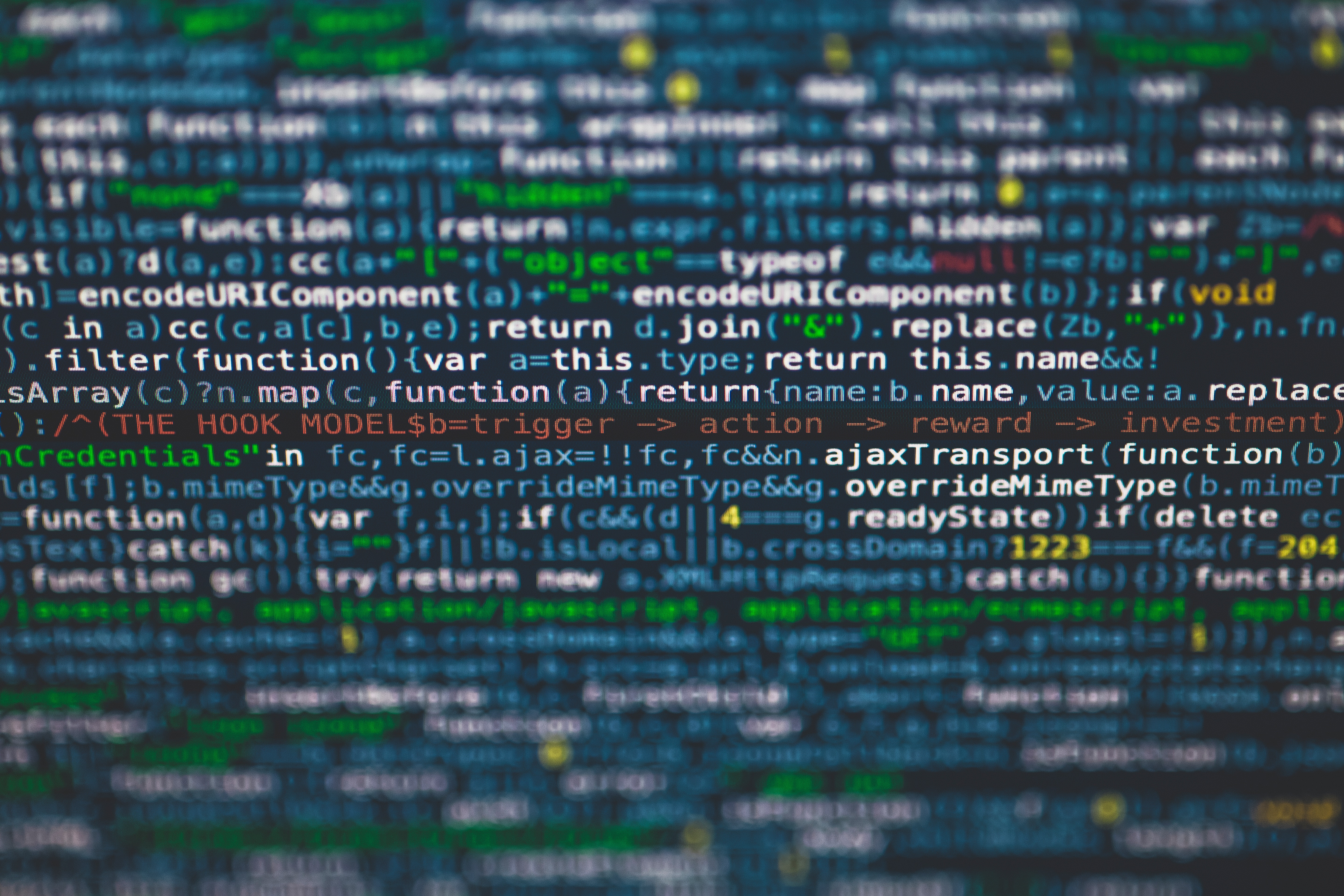Exploring Ethical Hacking Jobs

Introduction
In today's digital landscape, where cybersecurity threats are becoming increasingly prevalent and sophisticated, the importance of ethical hacking cannot be overstated. Ethical hacking, also known as white-hat hacking or penetration testing, plays a vital role in safeguarding computer systems and networks from malicious attacks. It is a practice that involves proactively identifying vulnerabilities and weaknesses in security defenses, mimicking the techniques and methodologies used by malicious hackers, and providing valuable insights to organizations to help them strengthen their security measures.
The field of ethical hacking offers a dynamic and exciting career path for individuals who possess a deep understanding of computer systems, network protocols, and cybersecurity. Ethical hackers are professionals who are driven by curiosity, possess strong problem-solving skills, and have a passion for staying one step ahead of cybercriminals. They employ a systematic and methodical approach to evaluate the security posture of organizations, identify vulnerabilities, and provide recommendations for remediation.
In this comprehensive article, we will delve into the fascinating world of ethical hacking jobs. We will explore the various career paths within the field, the essential skills and qualifications required to succeed, effective job search strategies, and the significance of ongoing learning and professional development. Whether you are a cybersecurity enthusiast considering a career in ethical hacking or an experienced professional looking to advance your skills, this article will provide valuable insights and guidance to help you navigate the path to a rewarding ethical hacking career.
Ethical Hacker Job Description
Are you intrigued by the world of cybersecurity and have a passion for hacking with a purpose? If so, an ethical hacker job might be the perfect fit for you. In this section, we will delve into the role and responsibilities of an ethical hacker, the skills and qualifications required, and the significance of ethical conduct and legal compliance in this dynamic field.
Roles and Responsibilities
As an ethical hacker, your primary role is to identify vulnerabilities and weaknesses in computer systems and networks before malicious hackers can exploit them.
Your responsibilities include conducting penetration testing to simulate real-world attacks and assess the security posture of systems and networks, performing vulnerability assessments to identify potential weaknesses, and recommending appropriate measures to mitigate them. You will also be involved in developing and implementing security policies, procedures, and best practices, collaborating with IT teams to design and implement secure infrastructure and systems. It is essential to stay up-to-date with the latest hacking techniques, vulnerabilities, and security trends, as well as conducting research and staying informed about emerging technologies and their potential security implications.
Additionally, you will be responsible for providing security training and awareness programs for employees, investigating security incidents, and assisting in incident response activities. Your work will involve writing comprehensive reports detailing identified vulnerabilities and recommending remediation strategies.
Skills and Qualifications Required
To excel as an ethical hacker, you will need a combination of technical skills, ethical mindset, and continuous learning. Some essential skills and qualifications include:
Proficiency in various operating systems (such as Windows, Linux, and macOS) and network protocols.
Deep understanding of common security vulnerabilities and attack vectors.
Knowledge of programming languages (such as Python, C, or Java) and scripting for automating tasks.
Familiarity with ethical hacking tools and frameworks (such as Metasploit, Nmap, and Wireshark).
Strong problem-solving and analytical thinking abilities.
Excellent communication skills to effectively convey technical information to non-technical stakeholders.
Ethical mindset and commitment to integrity and confidentiality.
Relevant certifications such as Certified Ethical Hacker (CEH), Offensive Security Certified Professional (OSCP), or Certified Information Systems Security Professional (CISSP).
Entry-Level Ethical Hacker Jobs
Entry-level positions in ethical hacking provide opportunities for aspiring professionals to kick-start their careers in the cybersecurity field. These roles typically involve working under the guidance and supervision of experienced ethical hackers or security teams. Entry-level ethical hackers are tasked with assisting in vulnerability assessments, conducting basic penetration testing, and contributing to the overall security of systems and networks.
To excel in entry-level ethical hacker positions, beginners should possess a solid foundation in cybersecurity concepts and practices. Essential skills include knowledge of networking protocols, operating systems, and programming languages. Proficiency in tools commonly used for vulnerability scanning and penetration testing, such as Nmap, Metasploit, and Wireshark, is also valuable. Additionally, having a strong understanding of common security vulnerabilities, such as SQL injection, cross-site scripting, and buffer overflow, is crucial for identifying and addressing potential threats.
When searching for entry-level ethical hacker jobs, it is beneficial to leverage various job search platforms, cybersecurity job boards, and professional networking websites. Actively engaging in online communities and forums dedicated to cybersecurity can help in discovering job opportunities and connecting with industry professionals. Seeking internships or participating in cybersecurity competitions and hackathons can also provide valuable experience and networking opportunities.
Entry-level ethical hackers can gain practical experience by participating in hands-on projects, contributing to open-source security tools, or volunteering for cybersecurity initiatives. Building a portfolio that showcases practical skills, such as successful vulnerability identification and remediation, is crucial for standing out to potential employers. Additionally, obtaining relevant certifications, such as Certified Ethical Hacker (CEH) or Offensive Security Certified Professional (OSCP), can enhance credibility and demonstrate a commitment to professional development in the field of ethical hacking.
Ethical Hacking Careers
Various Career Paths within Ethical Hacking
Ethical hacking offers a diverse range of career paths, allowing professionals to specialize in different areas based on their interests and expertise. Some common career paths within ethical hacking include:
Penetration Tester: Penetration testers, also known as ethical hackers or ethical penetration testers, focus on identifying vulnerabilities in systems and networks through controlled and authorized hacking attempts. They simulate real-world cyber attacks to assess the security posture of organizations and provide recommendations for strengthening defenses.
Security Consultant: Security consultants provide expert advice and guidance to organizations on improving their overall security posture. They assess risks, develop security strategies, implement security measures, and ensure compliance with industry regulations and standards. Security consultants may specialize in specific sectors or areas, such as network security, application security, or cloud security.
Incident Responder: Incident responders play a critical role in handling and mitigating cybersecurity incidents. They are responsible for identifying and containing security breaches, investigating the root causes of incidents, and implementing measures to prevent future attacks. Incident responders need strong technical skills, analytical capabilities, and the ability to work under pressure in high-stakes situations.
Security Analyst: Security analysts monitor and analyze security events, alerts, and logs to detect potential threats and vulnerabilities. They perform risk assessments, develop security policies and procedures, and provide recommendations for enhancing security defenses. Security analysts play a crucial role in maintaining the security of systems and networks through continuous monitoring and proactive threat hunting.
Advancement Opportunities and Specializations
Within the field of ethical hacking, there are ample opportunities for advancement and specialization. Professionals can deepen their knowledge and expertise in specific areas to enhance their career prospects. Some common specializations include:
Network Security: Specializing in network security involves focusing on securing and protecting computer networks from unauthorized access, data breaches, and other network-level threats. This specialization often requires in-depth knowledge of network protocols, firewalls, intrusion detection systems, and virtual private networks (VPNs).
Web Application Security: Web application security specialists focus on identifying and mitigating vulnerabilities in web-based applications. They are proficient in web development frameworks, programming languages, and security testing techniques specific to web applications. This specialization addresses common threats like cross-site scripting (XSS), SQL injection, and insecure session management.
Mobile Security: With the widespread use of mobile devices and applications, mobile security specialists focus on securing mobile platforms, including smartphones, tablets, and mobile apps. They understand mobile operating systems, mobile application development frameworks, and mobile-specific vulnerabilities. Mobile security specialists address threats such as insecure data storage, reverse engineering, and unauthorized access to device features.
Cloud Security: Cloud security specialists focus on securing cloud computing environments and services. They understand cloud architecture, virtualization technologies, and the shared responsibility model. Cloud security specialists address risks related to data breaches, misconfigurations, and unauthorized access in cloud environments.
Ethical Hacker: Remote Jobs
In today's increasingly connected world, the demand for remote ethical hackers is on the rise. With the advancement of technology and the prevalence of remote work, ethical hackers can now carry out their crucial cybersecurity roles from anywhere in the world. In this section, we will explore the benefits and challenges of remote ethical hacking jobs for your reference.
Benefits and Challenges
Benefits:
Flexibility: Remote work allows you to have a flexible schedule, enabling you to work from anywhere as long as you have an internet connection. This flexibility can enhance work-life balance and accommodate personal commitments.
Increased Job Opportunities: Remote work eliminates geographical limitations, opening up a broader range of job opportunities. You can work for organizations located in different cities or even countries without the need for relocation.
Cost Savings: Remote work eliminates commuting expenses and reduces costs associated with working in an office, such as transportation, meals, and professional attire. This can result in significant savings over time.
Comfortable Work Environment: Working remotely allows you to create a workspace tailored to your preferences, promoting productivity and comfort.
Challenges:
Communication and Collaboration: Remote work may present challenges in terms of communication and collaboration with team members and clients. Effective communication tools and strategies, such as video conferences and project management platforms, are essential to overcome this obstacle.
Self-Discipline and Time Management: Remote work requires self-discipline and effective time management skills. Without the structure of a traditional office environment, it's crucial to maintain focus and meet deadlines.
Distractions: Working from home or other remote locations can introduce distractions that may affect productivity. Creating a dedicated workspace and establishing boundaries can help minimize these distractions.
Limited Face-to-Face Interaction: Remote work can result in limited face-to-face interaction with colleagues and clients. Building relationships and maintaining professional connections may require extra effort through virtual meetings and networking events.
Ethical Hacker Jobs Near Me
Exploring Local Job Opportunities
When searching for ethical hacker jobs in your local area, there are several avenues you can explore to find relevant opportunities. Start by checking online job boards and career websites that specialize in cybersecurity and IT positions. These platforms often allow you to filter job listings based on location, making it easier to find positions near you.
Additionally, consider reaching out to local cybersecurity firms, IT consulting companies, or government agencies that may have a need for ethical hackers. Attend industry events, meetups, and conferences in your area to network with professionals in the field and learn about potential job openings. Building connections within the local cybersecurity community can provide valuable insights and lead to job opportunities.
Furthermore, keep an eye on job postings from local businesses and organizations that prioritize their cybersecurity defenses. Many companies across various sectors, such as finance, healthcare, technology, and retail, require ethical hackers to ensure the security of their systems and protect sensitive data.
Tips for Navigating the Local Job Market
Navigating the local job market as an ethical hacker requires strategic planning and preparation. Consider the following tips to increase your chances of finding a suitable job near you:
Polish Your Resume: Tailor your resume to highlight your relevant skills, certifications, and experiences in ethical hacking. Emphasize any specialized knowledge or accomplishments that align with the specific job requirements you're targeting.
Develop a Strong Online Presence: Create a professional profile on LinkedIn and other relevant platforms. Highlight your skills, certifications, and achievements. Share your knowledge through blog posts or contributions to cybersecurity communities. Having a strong online presence can attract the attention of employers and increase your visibility in the local job market.
Expand Your Skill Set: Continuously enhance your skills and knowledge in ethical hacking. Stay updated with the latest tools, techniques, and trends in cybersecurity. Acquiring additional certifications, such as Certified Ethical Hacker (CEH) or Offensive Security Certified Professional (OSCP), can demonstrate your expertise and make you stand out to employers.
Engage in Local Cybersecurity Events: Attend local cybersecurity events, workshops, and conferences. These gatherings provide opportunities to network with professionals, learn from industry experts, and discover job openings in your area. Actively participate in discussions and engage with others to expand your professional network.
Seek Internship or Volunteering Opportunities: Consider internships or volunteering positions with local organizations, especially if you are just starting your career in ethical hacking. These opportunities provide practical experience, allow you to build a portfolio of real-world projects, and can potentially lead to full-time job offers.
Leverage Professional Networks: Join local cybersecurity or IT professional organizations. Engage with members, participate in their activities, and leverage their networks to uncover hidden job opportunities. Professional networks can provide valuable insights, mentorship, and referrals.
Certified Ethical Hacker Certification Requirements
Becoming a certified ethical hacker is a significant milestone in establishing yourself as a skilled professional in the field of cybersecurity. To obtain the Certified Ethical Hacker (CEH) certification, there are specific requirements you need to fulfill.
Overview of the CEH Certification
The Certified Ethical Hacker (CEH) certification is a globally recognized credential for professionals seeking to validate their skills and knowledge in the field of ethical hacking. This certification, offered by the International Council of E-Commerce Consultants (EC-Council), is designed to equip individuals with the tools and techniques necessary to identify vulnerabilities and weaknesses in computer systems and networks. The CEH certification demonstrates proficiency in ethical hacking methodologies and validates one's ability to think like a hacker while maintaining high ethical standards.
To obtain the CEH certification, candidates are required to pass the CEH exam, which assesses their understanding of various hacking techniques, tools, and methodologies. The exam covers topics such as reconnaissance, network scanning, system hacking, web application penetration testing, and more. In addition to passing the exam, candidates must also adhere to the EC-Council's code of ethics, which emphasizes ethical conduct and responsible use of hacking skills.
Achieving the CEH certification offers numerous benefits. It provides a competitive edge in the job market, as many organizations value certified ethical hackers who can help enhance their security measures. The certification also demonstrates a commitment to professional development and continuous learning in the field of cybersecurity. CEH-certified professionals can pursue diverse career opportunities, including roles such as ethical hacker, penetration tester, security consultant, and incident responder.
Specific Requirements to Get this Certification
To obtain the Certified Ethical Hacker (CEH) certification, there are specific requirements that need to be fulfilled. Here are the general prerequisites:
Eligibility: Candidates must be at least 18 years old to be eligible for the CEH certification.
Training: EC-Council, the organization behind the CEH certification, offers official training through its accredited training centers or through online self-paced courses. Completing the official training is highly recommended but not mandatory.
Self-Study Option: If you choose the self-study option, you need to demonstrate at least two years of relevant work experience in the information security domain. This experience should be validated through the EC-Council's Eligibility Application Process.
Exam: Once you meet the eligibility requirements, you can register for the CEH certification exam. The exam consists of 125 multiple-choice questions, and you have four hours to complete it. The exam assesses your knowledge and skills related to ethical hacking techniques, tools, methodologies, and best practices.
Code of Ethics: As a CEH candidate, you must agree to abide by the EC-Council's Code of Ethics, which emphasizes ethical conduct and professionalism in the field of information security.
Online Courses to Learn Ethical Hacking
To succeed in the field of ethical hacking, the key skill you need is a strong technical understanding of computer systems and networks. However, ethical hacking is a multifaceted field, and proficiency in various skills can greatly contribute to your success. Fortunately, there are numerous resources available to help you develop this knowledge. In the Ethical Hacking Online Courses Catalog at AZClass, you will find a whole depository of theoretical and technical know-how in this realm, which offers a wide selection of courses designed to help you master these skills and start bringing your ideas to life.
Conclusion
In conclusion, ethical hacking emerges as a crucial field in the face of escalating cybersecurity threats. This article provided a comprehensive overview of ethical hacking jobs, outlining the responsibilities, skills, and certifications required for a successful career as an ethical hacker. It also discussed entry-level positions, various career paths, job search strategies, and the accessibility of remote and local jobs in this field.
Looking ahead, the future of ethical hacking appears promising. With the continuous advancements in technology and the increasing reliance on digital systems, the demand for skilled professionals who can safeguard sensitive information and protect against cyberattacks will continue to rise. Ethical hackers will play a pivotal role in ensuring the security and integrity of organizations' digital assets, making it a highly sought-after field with ample opportunities for growth and development.
If you are considering a career in ethical hacking, please pursue your passion and embark on this exciting journey. Continuously update your skills, stay informed about the latest hacking techniques and security trends, and seek certifications like the Certified Ethical Hacker (CEH) to enhance your credibility. Engage with the ethical hacking community, collaborate with like-minded professionals, and never stop learning. Your dedication and skills have the power to make a difference and contribute to a safer digital landscape.





